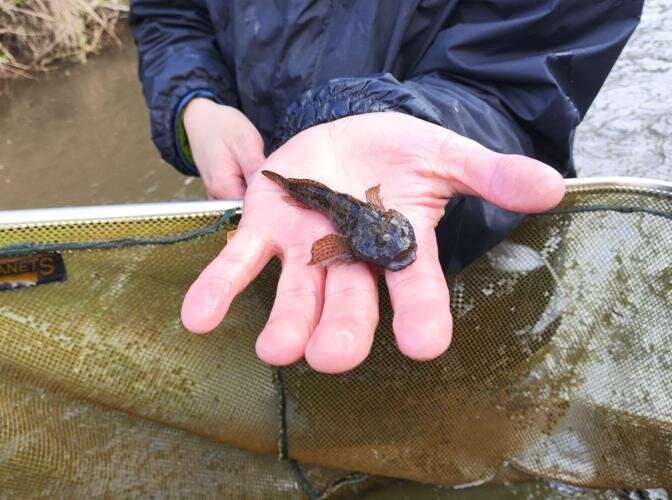This article has been reviewed according to Science X's editorial process and policies. Editors have highlighted the following attributes while ensuring the content's credibility:
fact-checked
trusted source
proofread
Researcher says not every exotic species needs to be controlled

Certain invasive exotic species, such as the red swamp crayfish, are harmful to our environment because they nibble on aquatic plants, dig burrows in banks, and transmit crayfish plague to native species. "But there are also non-native fish and crayfish that are not harmful and do not need to be controlled," ecologist Pim Lemmers argues in his Ph.D. thesis, which he will defend at Radboud University on 30 May.
The red swamp crayfish has a bad reputation, and not without good reason. "It really is the worst," says Lemmers. "It walks on land, destroys aquatic plants, and digs into banks, to the detriment of water quality. It is a real problem."
The spinycheek crayfish, on the other hand, is currently causing far fewer problems in the Netherlands. It does not burrow in banks, although it did in the past transmit crayfish plague, thus contributing to the drastic decline of European crayfish in the Netherlands.
Fishing net and waders
For his Ph.D. research, Lemmers studied various exotic species—animal species that do not naturally occur in the Netherlands—and their ecological and socio-economic impact. To do so, he carried out a lot of lab and field work. Armed with a special fishing net and waders, he went into the Meuse, the Rhine, and several of their tributaries.
"We used electro-fishing: an electrified fishing net that allows you to pull fish towards you. As soon as you switch off the current, the fish immediately swim away," says Lemmers. He counted, measured and determined the fish he caught in the rivers, and took some specimens to the lab to examine the ratio of stable isotopes of nitrogen and carbon in their muscle tissue.
"This data allowed me to deduce exactly what the fish were eating. If an exotic species eats totally different food from a native species, it is probably not causing harm," he adds. This method allowed him to carry out a risk analysis and determine which exotic species were dangerous and which not.
Bullhead
The bullhead, for example, is not doing so well because of an invasive exotic species. Lemmers explains, "The bullhead occurs naturally in the Meuse, but it has almost completely disappeared due to competition from the invasive round goby. That is a very nasty exotic fish that can find food very quickly and displaces other fish from their hiding places."
A very similar fish is the Cottus rhenanus, which has actually been doing well since the 1990s—when the water quality of some streams improved. "The round goby has not yet invaded the natural habitat of the Cottus rhenanus. This shows that an invasive exotic species can really make a difference."
The vimba bream is an example of an exotic species that causes little trouble. The ecologist says, "It used to only occur in the Danube, but has now reached the Netherlands through various canals. It can thrive here, and other fish are unlikely to be inconvenienced by it."
Risk analysis
Lemmers argues that not all exotic species have a negative impact, and we therefore do not need to fight them all. We can even benefit from their presence. Lemmers says, "The zander was also originally an exotic species that has now completely found its home here. It even plays an important role in commercial fishery."
Proper consideration of all the positive and negative effects of an exotic species helps the government make decisions on exotic species management. Lemmers' research makes a substantial contribution to this process.
Provided by Radboud University




















